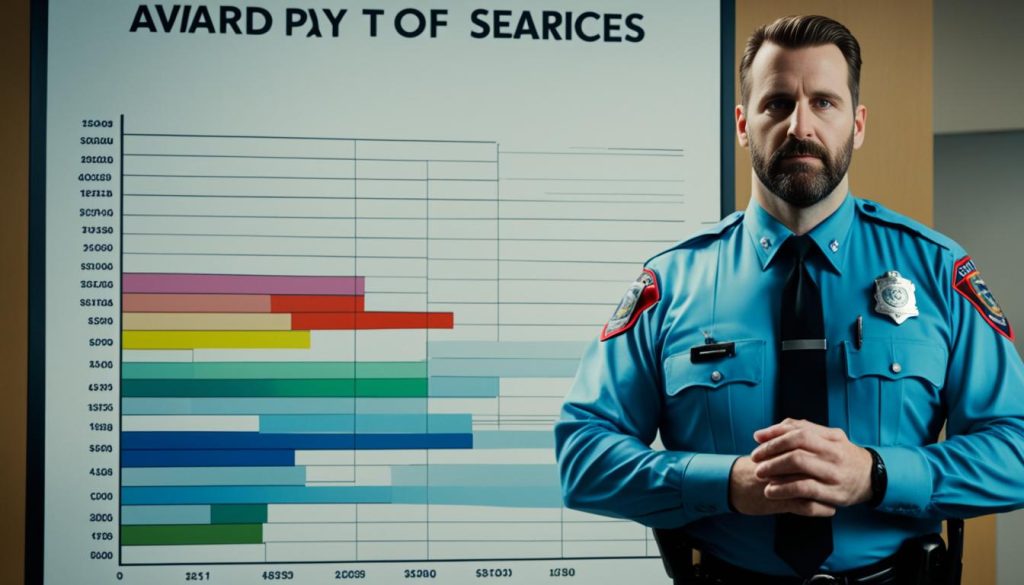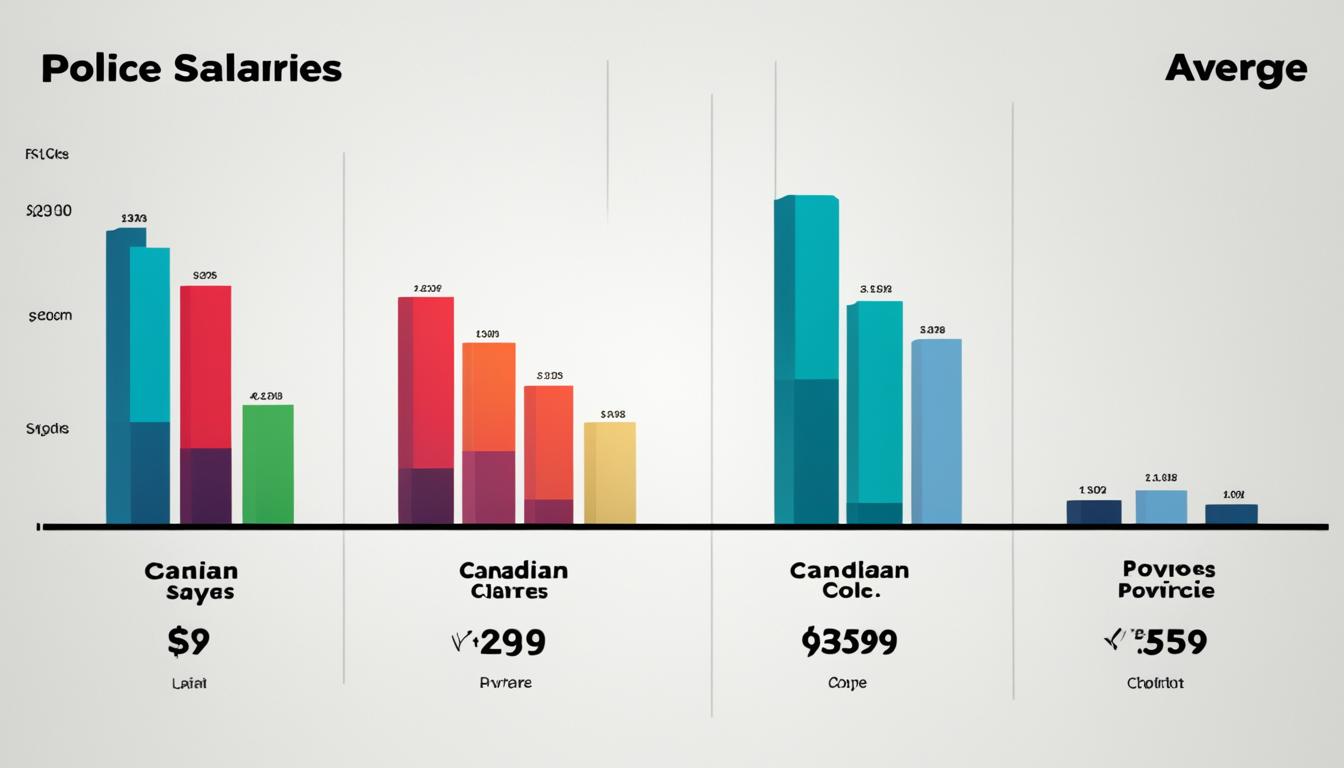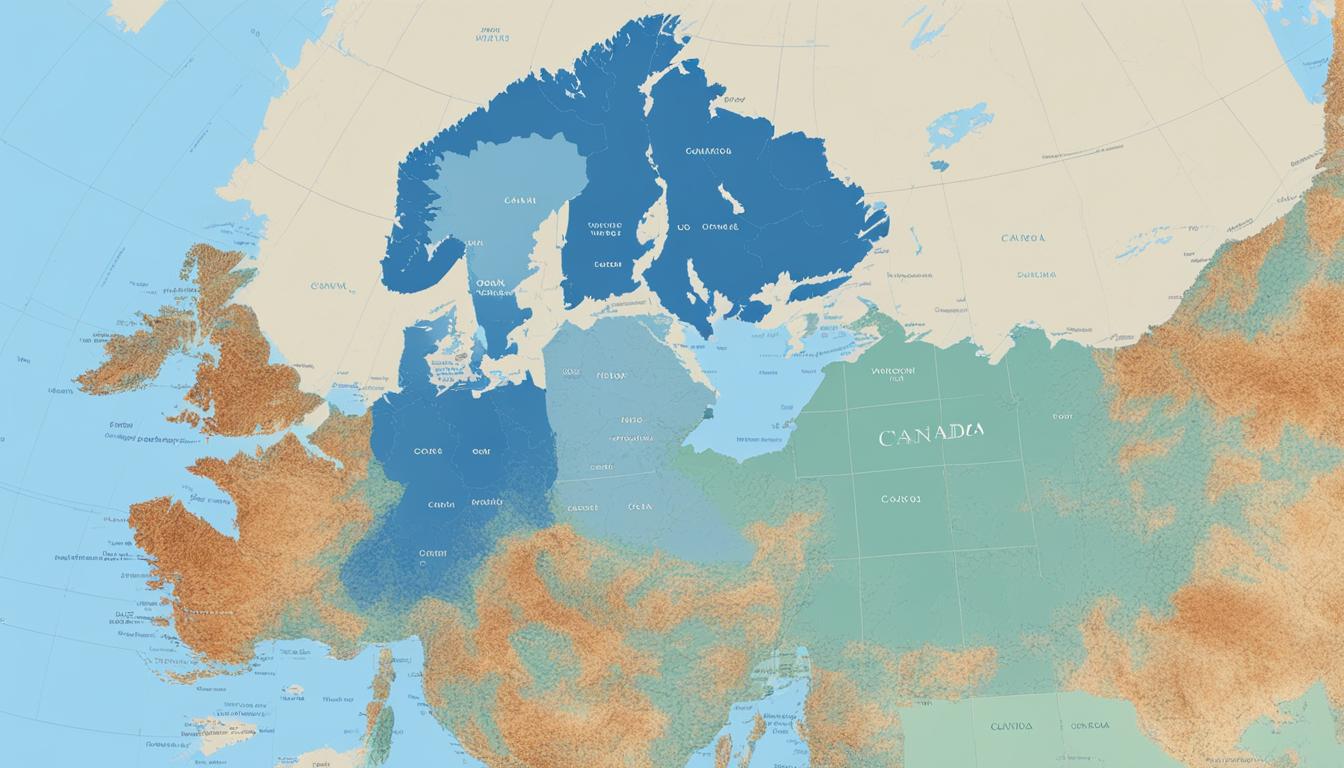Canadian Police Salaries Revealed – Surprising Facts!
Did you know that a new tentative agreement in Vancouver would make the city’s police officers the highest paid in Canada? That’s right, with a first-class constable’s pay reaching about $122,000 next year, Vancouver’s police officers will be earning more than their counterparts in any other Canadian city.
Police forces across Canada have been facing challenges in recruiting and retaining officers due to a tight labor market and competition from other organizations. Furthermore, the high cost of living in Vancouver serves as an additional deterrent for officers looking to settle down in the city.
Key Takeaways:
- Vancouver’s police officers will become the highest paid in Canada, with a first-class constable’s pay reaching around $122,000 next year.
- Police forces across Canada are struggling to recruit and retain officers.
- The high cost of living in Vancouver poses a challenge for officers looking to settle down in the city.
Police Expenditures and Strength in Canada
Operating expenditures for policing in Canada reached $15.1 billion in 2017-2018, with salaries, wages, and benefits accounting for 82% of the total. The average salary for police officers in Canada that year was $99,298. The number of police officers in Canada decreased by 463 from the previous year, resulting in a rate of police strength of 185 officers per 100,000 population. Additionally, police services spent significant amounts on information technology operations and police equipment.

| Year | Total Operating Expenditure (CAD billions) | Salaries, Wages, and Benefits (CAD billions) | Average Salary for Police Officers (CAD) | Number of Police Officers | Rate of Police Strength per 100,000 Population |
|---|---|---|---|---|---|
| 2017-2018 | $15.1 | $12.4 | $99,298 | 68,562 | 185 |
Demographics of Canada’s Police Force
In 2018, Canada had a total of 14,943 female police officers, representing 22% of the overall police force. The representation of women in law enforcement has been steadily increasing since 1986, when data on gender were first collected, highlighting a positive trend towards gender diversity and equality in the profession.
Indigenous individuals accounted for 4% of police officers and recruits in Canada. This demonstrates the ongoing efforts to improve representation and inclusion of Indigenous communities within the police force.
Visible minorities comprised 8% of police officers and 12% of recruits. These numbers highlight the diverse makeup of Canada’s police force, reflecting the multicultural fabric of the country.
Another notable trend is the increasing proportion of police officers over the age of 50. In 2018, 18% of officers belonged to this age group, marking a steady rise since 2012. This trend suggests the need for thoughtful succession planning and recognizing the value of experienced officers within the force.

Municipal, Provincial, and Federal Policing in Canada
Policing in Canada is administered at the municipal, provincial, and federal levels. In 2018, there were 141 stand-alone police services at the municipal level and 36 First Nations self-administered services. The Royal Canadian Mounted Police (RCMP), an iconic symbol of law enforcement in Canada, plays a significant role in provincial, municipal, rural, and First Nations policing.
While some provinces have their own provincial police services, there are three provinces that do not. Instead, they rely on the RCMP for law enforcement needs. These provinces include Ontario, Quebec, and Newfoundland and Labrador. The distribution of policing responsibilities varies across regions of Canada, with each level of policing having its own area of jurisdiction.
The RCMP, as a federal agency, is responsible for enforcing federal laws and statutes. This includes the protection of federal facilities, the enforcement of drug trafficking laws, and the investigation of organized crime. Additionally, the RCMP provides policing services to certain municipalities and Indigenous communities that do not have their own police forces.
Toronto Police Salaries and Costs
In Toronto, the majority of police service employees earned more than $100,000 in a year, with 4,125 employees accounting for about 52% of the force. The salaries of Toronto police officers have been inching closer to the $100,000 mark, with the average constable’s salary estimated at $90,000 by the union.
Paid duty, when officers direct traffic or attend private events while off-duty, has been a contributing factor to the increase in earnings. The Toronto Police Services Board has expressed concern over the rising costs of policing and has requested a review of paid duty.
| Year | Number of employees earning over $100,000 | Percentage of force |
|---|---|---|
| 2019 | 4,125 | 52% |
| 2018 | 3,845 | 49% |
| 2017 | 3,587 | 46% |
The table above shows the number of Toronto police service employees earning over $100,000 in the past three years. As the data reveals, the percentage of the force earning above this threshold has been consistently increasing, indicating a trend towards higher salaries.
Perspectives on Toronto Police Salaries
When it comes to the salaries of Toronto police officers, there are differing perspectives on what constitutes fair compensation. The Toronto Police union president argues that considering the high cost of living in Toronto, a salary of $100,000 is justified for police officers. He believes that it recognizes the challenging nature of the job and helps attract and retain qualified individuals to serve and protect the city.
Furthermore, the union president highlights that the list of employees earning over $100,000 can be misleading. The majority of paid-duty costs, such as directing traffic or attending private events while off-duty, are covered by the private sector rather than taxpayers. This contributes to the increase in earnings for some officers and distorts the perception of overall salaries.
However, concerns have been raised by the Toronto Police Services Board and Mayor John Tory regarding the burden on taxpayers and the need to evaluate the costs associated with paid duty. They argue that a comprehensive review is necessary to ensure transparency and accountability in terms of policing expenditures.
Ultimately, finding a balance between fair compensation for police officers and fiscal responsibility is essential. The perspectives on Toronto police salaries reflect the ongoing discussion surrounding the complexities of law enforcement earnings in Canada.
Key Takeaways:
- The Toronto Police union president defends salaries of police officers, citing the high cost of living in Toronto as a justification for fair compensation.
- He emphasizes that the list of employees earning over $100,000 can be misleading, as the private sector covers most paid-duty costs.
- The Toronto Police Services Board and Mayor John Tory express concerns about the burden on taxpayers and call for a review of the costs associated with paid duty.
| Key Perspectives | Summary |
|---|---|
| Toronto Police Union President | Defends salaries, citing the high cost of living in Toronto. |
| Toronto Police Services Board and Mayor John Tory | Raise concerns about taxpayer burden and call for a review of paid-duty costs. |
Operating Expenditures on Policing in Canada
In 2017-2018, operating expenditures on policing in Canada experienced a 2% increase, reaching a total of $15.1 billion. This reflects the significant investment made in maintaining law and order in the country. When examining these expenditures, it is evident that salaries, wages, and benefits account for 82% of the operating budget.
Aside from personnel costs, police services also allocate substantial resources towards information technology operations and equipment. This includes investments in radios, software, and computers, which are crucial for effective communication, data management, and intelligence gathering.
Looking at the per capita cost of policing in Canada, it rose to $318 in 2017-2018, marking the highest it has been since 2012-2013. This figure highlights the financial commitment and priority placed on ensuring public safety and security throughout the nation.
| Expenditure Category | Funding Percentage |
|---|---|
| Salaries, Wages, and Benefits | 82% |
| Information Technology Operations | Varying |
| Police Equipment | Varying |
The Role of Police Services in Canada
Police services in Canada play a vital role in maintaining law and order, ensuring public safety, and responding to various community well-being and safety issues. With the evolving nature of crime, the roles and responsibilities of police services have become increasingly complex.
Crime prevention is a significant aspect of police work, aimed at deterring criminal activities and minimizing harm to individuals and communities. Law enforcement involves apprehending and prosecuting offenders, ensuring justice is served. Additionally, police services provide essential public assistance, supporting individuals and communities in times of crisis and emergencies.
The demands on police services continue to grow, requiring effective resource management to meet the evolving needs of Canadian communities. This includes timely response to emergencies, maintaining a visible presence to deter crime, and implementing proactive strategies to address emerging challenges. The dedication and professionalism of police officers are crucial in upholding the safety and security of Canadian society.
- Canada Arrest Protocol: What Police Say Upon Arrest - June 12, 2025
- Can Police Disclose Who Reported You? Find Out Here - June 6, 2025
- 2025 Window Rebates Ontario: How to Save Money While Replacing Windows and Doors - April 24, 2025




















Post Comment